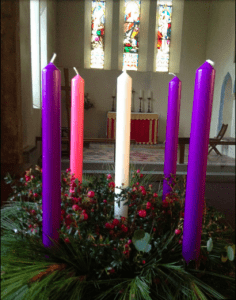In a series I am doing with others at Patheos, I thought I’d share the insight of Billy Kangas on the Christmas narrative in Luke 2 as “political propaganda.” Don’t let the word “propaganda” distract you. Here’s his set of ideas:
3. The Story of Jesus Birth was Propaganda (and that’s awesome)
Luke opens his formal birth narrative by giving an explanation of how it came to be that Jesus was born in Bethlehem. He situates the impetus for travel within a census which is said to have been conducted throughout the whole world, or at least that portion which was under control of the Romans. The use of the “whole world” image employed by Augustus creates a subtle parallel. This Caesar, by making this demand, has made a claim at being the lord of the whole world. This is contrasted with all the royal language which had just been attributed to Christ in the Magnificat and Canticle of Zechariah. Caesar is the lord of the world through temporal subjugation. Christ, on the other hand, is positioned to be the lord of the world through heavenly mercy (1:54).
When Mary and Joseph finally arrive in “the city of David”, the birth narrative is centered around a manger. This detail by seems to be very important, since Luke mentions it three times (2:7, 12, 16). This image is probably rooted in Isa 1:3 which states, “The ox knows its owner, and the ass its master’s crib; but Israel does not know, my people does not understand” (NRSV).[4] Luke is challenging his hearers to recognize their master’s crib, and the master contained within. It’s not Ceaser, but the Christ child.
It’s also interesting that Luke brings shepherds instead of Magi to honor Jesus. Luke focuses again and again on David, a former shepherd. This makes the focus on shepherds of messianic significance. If this was Luke’s intended connection, however, it didn’t last long. They soon became a representative to commentators as God’s grace to the lowly rather than to the religious elite.[5] Although this is a beautiful notion, the messianic connotations make more sense with the rest of the symbols used by Luke in this pericope. They remind us of the shepherd King, who established a new dynasty in Israel.
Another element that is often forgotten is the military and imperial connotations of the description of the angels and the angels’ message. They are essentially God’s army, which is promoting a form of counterpropaganda. They are stating that “this day” marks a new eschatological shift. They tell the shepherds that there is a new imperial birth. The messianic lord is here, and he is born in the city of David. For a Jewish audience this announcement would be a validation of the beliefs of many that Roman power was illegitimate. For an imperial audience this would be nothing short of high treason.
What this means for us: The Christmas story was a reminder to the Early Christians of where their true allegiance was. They were citizens of a kingdom without borders, and were under a ruler without lands. Their banner was love, their mission was sacrifice, their constitution was proclamation. Let Christmas remind you to build the kingdom of God, and let it free you from our contemporary monarchies of xenophobia, materialism, covetousness, and waste.













